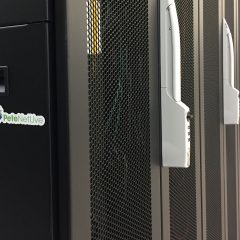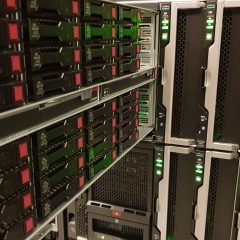Windows Folder Redirection
KB ID 0000467 Problem Q: What is Folder Redirection? A: Essentially you can take folders that hold things like your “My documents” or your “Favorites” folder, and put them out on a network server, which is great if you want to back that sort of information up for disaster recovery. Q: What’s the difference between this and a roaming / roving profile? A: Folder redirection keeps information on a server...
Arcserve – Backup a ‘Mapped Drive / UNC Path”
KB ID 0001165 Problem It’s been such a long time since I touched any backup software, I setup Arcserve UDP this week for a client to backup their servers to a NAS drive, then they wanted to back that data off to tape for an offsite backup. I installed Arcserve no problem, it looks much the same as it did last time I used it. When I expanded the server-name only the local drives were shown, as I only had a basic licence adding...
Deploy the Trend Worry Free Business Client via Group Policy
KB ID 0000491 Problem Trend Worry Free is a nice product, though to deploy the client software out to your machines, you need them to be switched on, have the firewalls off, and the remote registry service running. You can of course connect the clients to the web portal and install the client on a machine by machine basis, (default https://servername:4343), but if you are rolling out a lot of machines this can get tedious. So you can...
Migrate Exchange 2010 to Exchange 2016 (& 2013)
Part 3 Migrating Certificates and Decommissioning Exchange 2010 KB ID 0000816 Problem Continued from Migration From Exchange 2010 to Exchange 2016 Part 2 Solution Exchange 2013/2016 Migration Step 8 Migrating Certificates from 2010 to 2016 Only consider doing this if you have a purchased (i.e. NOT using a self signed) certificate on your Exchange 2010 server. Bear in mind if you have the internal FQDN of your Exchange 2010 server as a...
Exchange: Importing Mail From PST Files (including Bulk Importing)
KB ID 0000443 Problem If you have mail in .PST file format that you would like to import, either exported via ExMerge from an older Exchange server, or Exported via Outlook, or even exported via PowerShell, then the process for importing that mail into Exchange has been the same since Exchange 2010 (SP1). Before SP1 you would have to install a copy of Outlook on the Exchange server and use a PowerShell command that looks like this...




